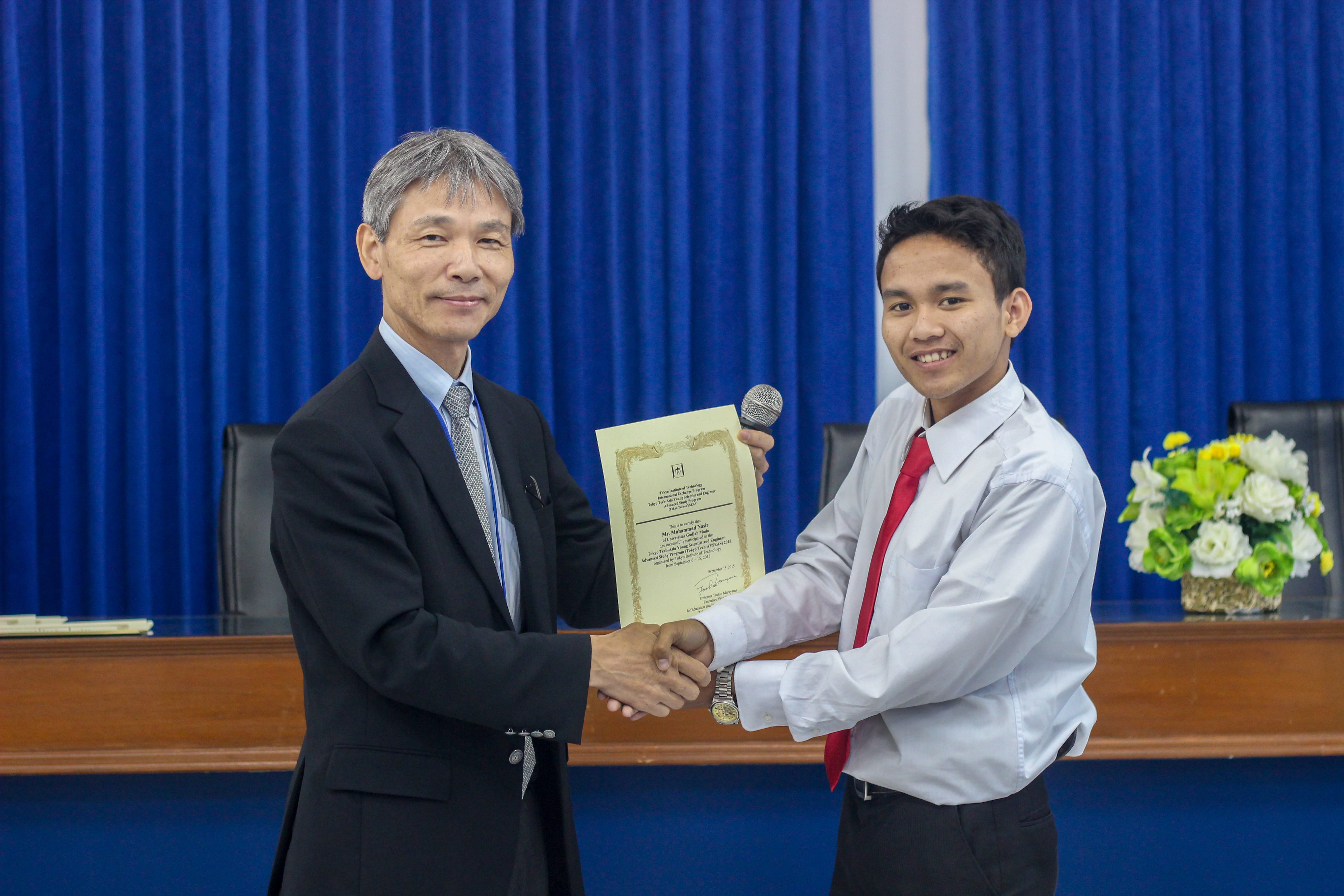ASEAN Leaders have declared an ASEAN Community, namely the ASEANPolitical-Security Community, ASEAN Economic Community and ASEAN Socio-CulturalCommunity that calls for awell-connected ASEAN that will contribute towards a more competitive and resilientASEAN, as it will bring peoples, goods, services and capital closer together. A key step towards this program is by improving connectivity among ASEAN Member States, ASIAN member states, and the rest of the world by enhancing institutional connectivity and people-to-people linkages.
It was a very great opportunity for me to be chosen as one of participant of Tokyo-Tech Asia Young Scientist and Engineer Study Program. Tokyo Tech-AYSEAS is the successor to the Japan-Asia Young Scientist and Engineer Study Visit (JAYSES) program, which began in 2007. This program aims to provide a joint study trip program for students from Tokyo Tech- AYSEAS member universities in Japan, Indonesia, the Philippines, Singapore, Thailand and Vietnam. Last year, this program was conducted in Vietnam and this year the program was held in Jakarta and Yogyakarta; Indonesia for ten days started on September 6th until Septermber16th.
This program conducted some factory tours and world heritage site visits, cultural exchange and discussion among the participants as well as presentation. During Factory tour, we learned industrial dynamic development and industrial production process from factories that we visited. Industries in Asia are growing rapidly and getting more competitive as everyone has the same opportunity to involve in it. As a young engineer, a comprehensive understanding about industry becoming a compulsory basic to cross over fast-growing industry in the next future. In the program we were given a chance to extensively experience industrial visits so that we were able to identify more about the details of the process, the instruments and control systems used in the companies more than what we had encountered in the classrooms. The factories that we visited were Japanese Companies and Indonesian Companies so that we were able to compare the positive and negative impact of the companies towards Indonesia’s development. This companies were Nippon Shokubai, Toyota, Denso, CV KaryaHidupSentosa and PT Sari Husada as well as a non-profit Corporation JICA.
The best part of this program were world heritage site visits and cultural exchange among the participants to show the cultures of each country. We visited some world heritage site in Yogyakarta. This site were Borobudur temple, Sultan’s Palace/Keraton, Malioboro as well as Taman Sari. During cultural exchange, each country performed their own cultures and we played some games that exist in their countries. The participants from Indonesia performed traditional dance from Papua and we also showed Tari Poco-poco on the stage and invited participants from other countries to dance with us.
The main theme of the discussion during the program was “From Asia to the World”. The discussion topics were the issues that currently exist in Asia’s countries. The topics were motorization and traffic jams, development of energy resources and protection of environment, education and industrial management, innovation and regional/global competition, cultural difference and understanding on different culture, etc. At the end of the program, we had final presentation to present all the things we had learned during the program as well as the things that we had shared and discussed among participants.
To sum up, this program was really beneficial to establish an international network, learn about relations between Asian countries and collect useful information about studying abroad as well as student exchange program. I really encourage the readers especially Engineering Physics students to participate this program next year.
— Muhammad Nasir




